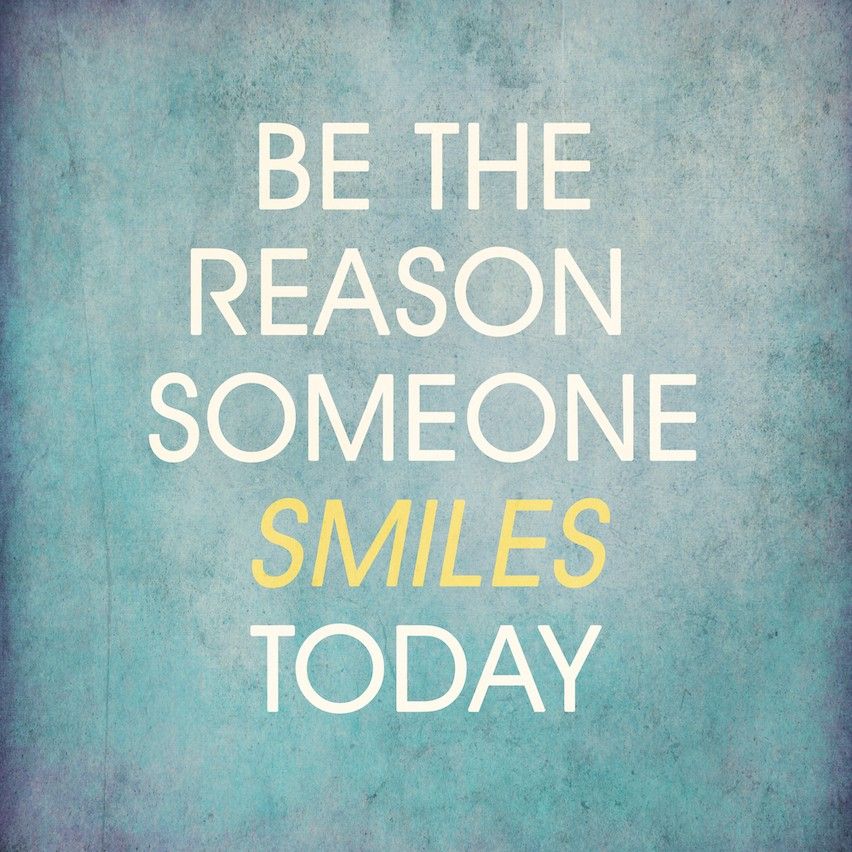Contents
the email tool that makes email marketing simple
50+ Great Email Sign-Offs: Proven Ways to Get More Replies
Published: December 23, 2024
Crafting the right email closing is essential, especially when looking to leave a lasting impression. A good email sign-off can transform an okay email into a great one, paving the way for future connections.
Increase your sign off inventory beyond the typical 'best regards' or 'have a great day.' A more original sign-off can set your message apart. It’s about adding a personal, resonant touch. Try out some of our suggested great email sign offs that are both memorable and appropriate for the context.
Your choice of conclusions is a strategic tool, not just a polite afterthought. Whether it's a formal, complimentary, or marketing email or one for a colleague requiring a funny email sign-off in a more relaxed setting, these final words can greatly impact your reader's perception and response.
Don’t hesitate to try different styles and tones. This article will guide you through striking the right balance, ensuring your email closings are appropriate and impactful. To gain a few new great email sign off examples, let's delve into how to end your emails with the care they deserve.
Great Email Sign-offs for Every Occasion
Professional Email Sign-offs
Professional mails usually require a formal touch, especially when communicating with high-level executives or in serious contexts. Here's a rundown of some classic, formal sign-offs, each serving a unique purpose in the realm of business communication.
Old but gold - this great email sign off never fails
1. Best regards
"Best regards" combines professionalism with a hint of warmth. It's versatile, fitting for various professional settings, and conveys respect and goodwill without being overly formal.
2. Sincerely
One of the most traditional formal sign-offs, "Sincerely" is ideal for first-time communications or more formal emails. It implies honesty and a straightforward approach.
3. Respectfully
For situations demanding high respect, such as addressing someone senior or in sensitive scenarios, "Respectfully" communicates deference and high esteem.
4. Yours sincerely
A staple in UK correspondence, "Yours sincerely" offers a personal touch while maintaining professionalism. It’s suitable when you've addressed the recipient by name.
5. Cordially
A formal yet warm sign off, "Cordially" blends friendliness with respect. It's appropriate for new business partners or acquaintances in a professional setting.
Each of these sign-offs is a testament to the power of simplicity and tradition in business emails, providing a suitable closure for various professional scenarios. If you prefer something a little more modern when writing a formal email, try "Warm regards" or "Thanking you in anticipation."
Call to Action Sign-offs
Encouraging a recipient to respond or engage is the point of many emails, especially in sales or networking. Using a call to action (CTA) as your sign-off can be a powerful way to prompt a reply or further discussion. Here are some effective CTA sign-offs.
Get your email recipient to respond quickly with these great email sign offs examples
6. Awaiting your feedback
This sign-off shows you value the recipient's opinion and are actively seeking their input. It works well when you've provided information or a proposal and are looking for a response.
7. Talk/Chat soon
A casual yet promising sign-off, indicating that you anticipate future communications. It's great for keeping the door open for further discussions.
8. Looking forward to hearing from you
Ideal for when you expect a reply or decision, this sign-off is both polite and anticipative. It subtly nudges the recipient to get back to you.
9. Let me know what you think
Use this when you’ve proposed an idea or plan and seek the recipient’s perspective. It’s an invitation for open dialogue and exchange of thoughts.
10. Feel free to contact me at the number in my signature
This offers a direct line of communication, making it easier for the recipient to reach out. It’s great for ensuring the conversation can continue beyond email.
11. Let’s catch up soon!
Perfect for informal or semi-formal contexts, this sign-off suggests a future meeting or call, keeping the lines of communication open and friendly.
Grateful Sign-offs
Expressing gratitude in your email sign off can leave a positive, lasting impression. It acknowledges the recipient's effort, time, or consideration. Here's how to effectively use grateful sign-offs.
Saying thank you is always appreciated whether in formal or casual settings
12. Grateful to have connected with you
This sign-off is perfect for emails where you've established a new connection. It expresses appreciation for the new relationship and sets a positive tone for future interactions.
13. Thank you for considering my proposition/application/request/recommendation
Use this when you've asked for something specific, like a job application or a business proposal. It shows appreciation for the recipient's time in reviewing your request. In more informal situations, use "Thanks" instead of "Thank you."
14. Truly appreciate what you've done
This conclusion is ideal for instances where the recipient has assisted you in some way. This sign-off conveys a sincere acknowledgment of their effort or help.
15. Thank you for the consideration
A versatile sign-off that can be used in various scenarios, especially when you're awaiting a decision or response. It expresses gratitude while being respectful of the recipient's process.
16. I appreciate your help
Direct and to the point, this sign-off is excellent for emails where you've received assistance or valuable input. It’s a straightforward way of expressing your gratitude.
Incorporating these grateful sign-offs in your emails can strengthen relationships and show your appreciation, making your communications more effective and memorable.
Personal Touch Sign-offs
Adding a personal touch to your email sign-off can create a friendlier and more approachable tone. It helps in building rapport and leaves the recipient with a positive feeling. Here are some personal touch sign-offs and their best use.
17. Warm regards
A step above the standard "regards," this sign-off adds a touch of warmth and friendliness. It's ideal for emails where you want to convey a sense of cordiality without being too informal.
18. Take care
Best used in more informal or personal business communications, "Take care" conveys a sense of concern and well-wishing for the recipient.
19. You always cheer up my day
Great for friendly emails to colleagues or clients you have a good relationship with. This sign-off adds a personal note and acknowledges the positive impact they have on you.
20. Thrilled to hear (have heard) from you
Great for responses where you want to express genuine happiness about the communication. It's warm and conveys that you value the interaction.
21. You’re the best
This is a cheerful way to express your appreciation, especially after the recipient has helped you out or delivered exceptional work. It is very casual though so be careful where you use it.
22. You are a true rockstar
Use this for emails where you want to offer high praise, especially after a significant accomplishment or contribution. It's enthusiastic and conveys a strong sense of admiration.
These personal touch sign-offs are perfect for when you want to add a bit of personality to your emails, strengthening your relationship with the recipient.
Inspirational Sign-offs
Inspirational sign-offs can leave the recipient feeling motivated and appreciated. They're especially effective in providing encouragement or support. Here’s how to use them effectively.
Inspirational sign offs are useful for encouraging someone
23. Keep up the good work
Perfect for emails where you're acknowledging someone's effort or progress. It's encouraging and affirming, suitable for colleagues or team members.
24. Keep your head high
Ideal for emails offering encouragement during challenging times. This sign-off motivates the recipient to stay positive and resilient.
25. Wishing you a productive Monday
A great way to start the week, this sign-off is perfect for a Monday morning email, offering motivation for the week ahead.
26. Here's a reminder to hydrate
This unique and caring sign-off adds a personal wellness touch, showing you care about the recipient's health and well-being.
27. Sincerely wishing you a no-stress day
Use this when you know the recipient is facing a busy or stressful period. It's a thoughtful way to convey support and good wishes.
28. All the best/good luck for [event]
Perfect for when the recipient is preparing for an important event or milestone. It shows you're aware of their activities and wish them success.
These inspirational sign-offs are perfect for lifting spirits and showing support, making your email not just a message, but a source of positive energy.
Unique Sign-offs
Unique sign-offs can make your email stand out and leave a lasting impression. They're perfect for adding personality to your message and making it memorable. Here are some distinct sign-offs and when to use them. Feel free to create your own great email sign offs template and add these to it.
29. To new horizons
Ideal for emails that involve new beginnings, changes, or ventures. This sign-off conveys optimism and a forward-looking perspective.
30. Onward and upward!
Great for encouraging progress and growth, whether in a project or personal development. It's an uplifting way to end an email that discusses advancement or improvement.
31. 3, 2, 1, blast off!
This playful and energetic sign-off is perfect for emails about launches, whether it's a product launch, project kickoff, or starting a new endeavor.
32. Stay tuned
Use this when you have upcoming news, updates, or exciting developments to share. It creates anticipation and lets the recipient know there's more to come.
33. Until next time
A casual and friendly sign-off, suitable for regular correspondences or when you anticipate ongoing interactions. It implies continuity and a looking forward to future communications.
These unique sign-offs add a touch of creativity and personality to your emails, helping them to stand out in a busy inbox.
Funny Sign-offs
Injecting humor into your email sign-off can be a delightful way to end a fun email, especially if your relationship with the recipient allows for a more casual tone. Here's how to use funny sign-offs effectively.
A little humor in your sign offs lets your personality shine through and ensures your mail is memorable
34. Keep on truckin'
A throwback to a classic phrase, this sign-off adds a touch of retro humor. It's ideal for conveying perseverance and a light-hearted attitude, especially in emails that discuss ongoing projects or challenges.
35. Until we meet again in the inbox
A clever and modern way to end an email, suggesting the ongoing nature of your digital communication. It's especially fitting for regular email correspondences.
36. Beam me up, Scotty
This iconic line from Star Trek is perfect for fans of the series or general sci-fi enthusiasts. It adds a playful and imaginative twist to your sign-off, suggesting a readiness for new adventures or challenges.
37. Don't let the muggles get you down
A nod to the Harry Potter series, this sign-off is perfect for emails with a lighter tone and can be particularly enjoyable for recipients who are fans of the franchise. It implies that they're part of an elite team and encourages them to stay positive, even in mundane or challenging situations.
38. In a galaxy far, far away...
Borrowing a line from the opening line of Star Wars , this sign-off is excellent for adding a cosmic and epic feel to your message. It's suitable for emails that deal with big ideas or imaginative projects.
39. Off to Hogwarts
Another Harry Potter reference, this sign-off is perfect for concluding emails on an enchanted note. It suggests stepping into a world of magic and possibilities – ideal for creative or educational contexts.
40. Caffeine levels low, signing off
A humorous acknowledgment of the need for a coffee break, this sign-off is relatable for many and adds a personal, lighthearted touch. It's ideal for casual emails or when wrapping up a conversation before a break.
41. Brb, time traveling
This whimsical sign-off adds a sense of adventure and fun. It's an imaginative way to end an email, especially in contexts where creativity and innovation are discussed.
42. Thank God It’s Friday!
Perfect for a Friday email, this sign-off adds a relatable and cheerful note, celebrating the upcoming weekend. It's a universal sentiment that brings a smile and a sense of shared anticipation for the break.
43. Hakuna Matata!
Borrowing from the famous phrase meaning "no worries," this sign-off adds a light-hearted and carefree tone to your email. It's a delightful way to spread positivity and a relaxed vibe. Note that it's suitable only for less formal communication!
Using these funny sign-offs can add a lighthearted touch to your emails, making them more enjoyable and memorable for the recipient.
Industry Tailored Sign-offs
Tailoring your email sign-off to the recipient's specific industry inserts a personalized touch and shows your awareness of their field. Here are some industry-specific sign-offs.
Each industry has its own jargon - use some in your sign off
44. May the [sports team] win!
Ideal for emails related to sports or recipients who are sports enthusiasts. It shows camaraderie and shared interest in the sporting world.
45. Hoping this [resource] helps you
Use this when you're providing a resource, advice, or information, especially in educational or consulting contexts. It reflects a helpful and informative tone.
46. May the force/sales be with you
A playful twist on another famous Star Wars phrase, this one is perfect for sales or marketing professionals. It adds a bit of humor and encouragement, especially in sales-driven environments.
47. Live long and prosper
Borrowed from the iconic sci-fi series Star Trek , this sign-off is a nod to tech and science buffs. It's both a wish for success and a shared cultural reference.
48. Wishing you productivity and a good hair day
A light-hearted and stylish sign-off suitable for the fashion and beauty industry. It combines professional well-wishing with a personal, industry-relevant touch.
These industry-tailored sign-offs show that you've taken the time to consider the recipient's professional background, adding a layer of thoughtfulness to your email.
Contextual Sign-offs
Contextual sign-offs are tailored to suit the specific situation or occasion referred to in your email. They show your attention to detail and help reinforce your email's message. Here are some contextual sign-offs and their ideal use.
Use context in your greetings to show your thoughtfulness
49. It was great working with you. Until next time
Perfect for concluding communications at the end of a project. It expresses satisfaction with the collaboration and leaves the door open for future opportunities.
50. Enjoy [vacation/PTO]
Ideal for emails to someone who is about to take a break or go on vacation. This sign-off shows personal consideration and well-wishing for their time off.
51. Wish you a happy [holiday]
A seasonal sign-off that can be customized for any holiday. It's a warm way to acknowledge the current season or upcoming holiday, adding a personal touch to your email.
52. Looking forward to [event]
Fitting for emails discussing upcoming events. It shows your enthusiasm and anticipation for the event, whether it's a meeting, conference, or any other significant gathering.
53. Excited for [event/webinar/meeting/results of a game or election
Use this when you want to express eagerness about an upcoming event or outcome. It's great for building excitement and showing your interest in the topic discussed.
54. Have a fantastic trip
Suitable for emails to someone about to travel. This sign-off conveys your good wishes for their journey, adding a considerate and personal note.
Each of these contextual sign-offs is designed to align closely with your mail's theme or purpose, making your communication more thoughtful and relevant to the situation. Use some of them in your next emails and watch the response.
Tailoring Sign-offs to the Recipient
Many people put careful thought into their email's subject line, introduction, and body but fall short at the end. It's important to finish strong and one way to do this is to customize the sign off line to the recipient. This can be done by bringing to mind who the receiver is, what they do, and the context of the mail. A tailored final greeting shows that you are someone who pays attention to detail and puts a little extra care into what you do.
Avoiding Common Pitfalls in Email Sign-offs
Probably the most common mistake made in email sign offs is being too casual in a professional context. Signing off with "Catch ya later" will definitely not go down well with your manager.
Another mistake often made is to leave the automated response as it is and use it for everyone in every context. If you keep a list of great email sign offs examples suitable for every setting, it will take just a few seconds to choose one for every scenario.
Examples of Inappropriate Sign-offs
Choosing the right sign-off is crucial, but knowing which email sign-offs to avoid is equally important. Certain sign-offs can detract from your message, create the wrong impression, or even offend. Here's a list of sign-offs to steer clear of and the reasons why.

1. Best
While not inherently bad, "Best" has become so common that it can come across as unimaginative or insincere. It may fail to leave a lasting impression due to its overuse.
2. Sent from iPhone
This default signature can appear unprofessional or give the impression that you're too busy to personalize your message. It's better to take a moment to type a more thoughtful closing.
3. Yours truly
This sign-off can feel old-fashioned in modern email communications. It might not resonate with contemporary audiences, especially in less formal business contexts.
4. Xoxo
Commonly understood as representing hugs and kisses, this sign-off is too personal and casual for professional emails. It's best reserved for close friends and family.
5. Having no sign-off
Skipping a sign-off entirely can make your email seem abrupt or unfinished. It's important to close your message with a proper sign-off to provide a sense of completion.
6. TTYL
This abbreviation for "Talk to you later" is overly casual and more suited for text messages than professional emails. It is far too informal for a business setting.
7. Fondly
"Fondly" can imply a level of personal affection that may not be appropriate in a professional context. It's better suited for personal correspondence with elderly aunts.
8. See ya
"See ya" is extremely informal and can come off as unprofessional or flippant in business emails. It lacks the professionalism expected in most work-related communications.
9. Warmest regards
While not inappropriate, "Warmest regards" can sometimes be too emotional or intense for certain professional interactions. It's important to gauge the relationship and context before using this sign-off.
10. Take it easy
"Take it easy" is a very casual sign-off that does not suit professional email contexts. It can come across as too laid-back or informal, especially in communications with new contacts, superiors, or in formal business situations. Use a more conventional closing in these cases to maintain a professional tone.
Avoiding these sign-offs can enhance the professionalism and effectiveness of your email communication, ensuring your message is received as intended.
Innovative Techniques for Email Signatures
Crafting an impactful email signature requires a blend of creativity and an understanding of email etiquette. Here are some innovative techniques for crafting great sign offs that leave a lasting impression:
Personalized Touch: Add a bit of your personality or professional role into the sign-off. For instance, "Stay awesome, [Your Name], the [Your Job Title]." This approach not only adds a personal touch but also reinforces your professional identity.
Inject Humor: If appropriate, funny email sign offs can lighten the mood and make your email memorable. Movie quotes like "I do wish we could chat longer, but I'm having an old friend for dinner," from Silence of the Lambs can add good vibes in less formal email contexts. However, always be mindful of the situation and avoid potentially rude email sign-offs.
Complimentary Closes: Use the closing words to add a touch of warmth. Phrases like "Wishing you a perfect day," or "Sending positive vibes your way," will leave the recipient with a positive feeling.
Cool and Quirky Phrases: For less formal interactions, cool sign-off phrases include "Peace out," or "Catch you on the flip side." These types of sign-offs can be particularly effective in marketing emails or more relaxed professional settings.
Formal Email Sign-offs: In formal settings, traditional sign-offs like "Best regards" or "Sincerely" remain effective. However, you can still be unique by tailoring them slightly, like "Best regards for your upcoming project," which shows attentiveness to the recipient's activities.
Email Address Reminder: Including your email address as part of your sign-off, especially in a new or formal email interaction, is a practical touch. For example, "John Doe, johndoe@email.com." This makes it easy for the recipient to reach out to you again without searching through their contact list.
Great Email Sign Offs Samples for Outlook : If you're using a client like Outlook, you can set up different sign-offs for different types of emails. For example, one email sign-off for a professional Outlook email is, "Looking forward to collaborating, [Your Name]."
Unique Email Sign-offs: To stand out, create unique sign-offs. Phrases like "Innovatively yours," or "Creatively committed," will reflect your approach to work and life.
Encouraging Action: If you want the recipient to take action, a sign-off like "Don't hesitate to reach out," or "Looking forward to your feedback," can be effective.
Remember, the key to writing good email sign-offs is to align them with the tone and purpose of your email. The right words will make your email stand out and foster a positive connection with your recipient.





![Man with pen in calendar, symbolizing 'Looking forward to [event]' as a thoughtful, contextual email sign off.](/cms/image/7223aa94-5d4a-401c-b6ff-6ba59d33403e?quality=80)